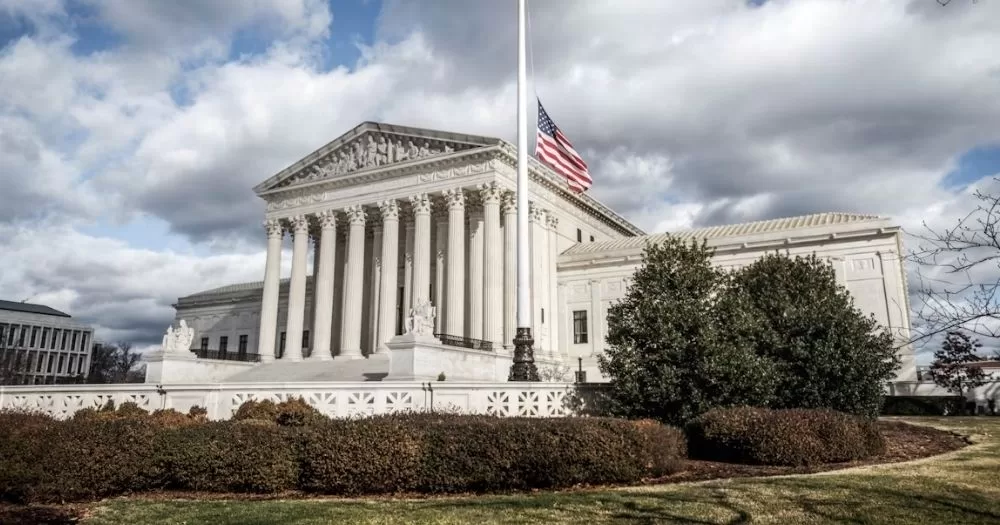The US Supreme Court has refused to consider an appeal to its 2015 Obergefell v Hodges ruling, a landmark decision that legalised same-sex marriage nationwide.
The challenge was brought before the court by Kim Davis, a former Kentucky clerk who refused to issue marriage licenses to same-sex couples. Davis argued that same-sex marriage conflicted with her religious beliefs as an Apostolic Christian.
In 2022, a lower court rejected her argument and ordered her to pay $360,000 in damages and attorney’s fees to a couple after she denied them a marriage license. “Davis cannot use her own constitutional rights as a shield to violate the constitutional rights of others while performing her duties as an elected official,” the judge wrote at the time.
Davis then brought the case before the US Supreme Court, also asking the justices to revisit the historic ruling that legalised same-sex marriage. However, the justices turned away her appeal without comment.
“The petition for a writ of certiorari is denied,” the justices announced on Monday, November 10. In refusing to review the case, the court is letting the ruling from lower courts stand, leaving Davis personally liable for violating the constitutional rights of same-sex couples. Moreover, the court’s decision leaves marriage equality in the US intact.
Human Rights Campaign president Kelley Robinson welcomed the court’s decision not to intervene, saying: “The supreme court made clear today that refusing to respect the constitutional rights of others does not come without consequences.”
Jim Obergefell, who brought the 2015 case before the Supreme Court, also commented on the decision. “The Court did the right thing in denying cert, and people across our nation can breathe a little easier today,” he told The Advocate. “But threats to marriage equality will likely continue, so we must not assume marriage, or any rights enjoyed by or due to any marginalized community, is safe.”
In a separate decision delivered in June 2015, the US Supreme Court upheld a Tennessee law that prohibits hormone treatments and puberty blockers for trans youth. While the decision was delivered in relation to the Tennessee ban, it paves the way for more than 20 similar laws nationwide to remain in effect.
© 2025 GCN (Gay Community News). All rights reserved.
Support GCN
GCN is a free, vital resource for Ireland’s LGBTQ+ community since 1988.
GCN is a trading name of National LGBT Federation CLG, a registered charity - Charity Number: 20034580.
GCN relies on the generous support of the community and allies to sustain the crucial work that we do. Producing GCN is costly, and, in an industry which has been hugely impacted by rising costs, we need your support to help sustain and grow this vital resource.
Supporting GCN for as little as €1.99 per month will help us continue our work as Ireland’s free, independent LGBTQ+ media.
